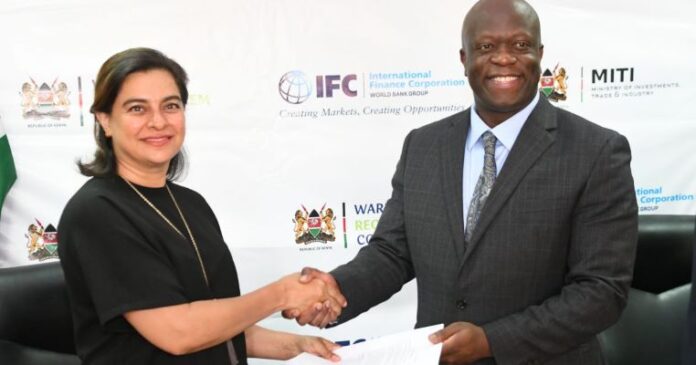
Post-harvest losses could soon be a thing of the past for small-scale grain farmers in Kenya following Ksh306m investment plan partnership between International Finance Corporation (IFC) and the Trade Ministry.
The plan which seeks to boost the value of produce through revamped warehouse receipt system will enable the growers to deposit their products in certified warehouses upon which they are issued with a receipt which can also help them to access credit.
According to Alfred K’Ombudo, principal secretary at the Ministry of Trade, the plan will also improve food security and enhance market predictability and pricing thus boosting local and regional trade for the farmers.
“We are seeking to enhance access to certified safe and quality storage facilities under licensed professional warehouse operators at affordable fees which will greatly uplift the living standards of especially women and youth at the grassroots level,” said K’Ombudo.
In this, IFC which is a member of the World Bank Group will provide technical assistance, help develop administrative procedures orders, service level agreements, and standard operating procedures to govern the Warehouse Receipt System Council (WRSC).
Amena Arif , IFC’s country manager for Kenya said that through the system, farmers will be granted better storage to enable them fetch fair prices and access credit for growth.
“Participation and investment from the private sector will be key to unlocking the benefits of the warehouse receipt system in Kenya and uplifting farmers,” said Arif.
It is expected that the initiative will in turn result in the growth of agro-processing and value addition industries, as agro-processors will have access to consistent quality and quantity commodities that will ensure effective utilisation of their processing capacities.
Grain post-harvest losses in Kenya
A food situation assessment carried out in 2017 showed maize losses, for instance, could be quite substantial. The country produced 37 million bags in 2017 of which 12% is estimated to have been lost post-harvest translating to about 4.5 million bags.
Generally, 20% of cereals, legumes and pulses harvested in Kenya are lost before they even hit the market.
This means that for a farmer with 20 acres of land, for example, six acres of the produce is lost before reaching the market, a catalyst to prolonged poverty, driving more people into extreme poverty.
More specifically, the project will be looking to counter post-harvest losses in maize production by about 10 per cent a boost to the government’s initiative to improve maize production through the fertiliser subsidy programme.
The country needs about 12 million bags of maize annually to fill up the consumption needs gap that has been widening over the past years on declined maize harvests.







